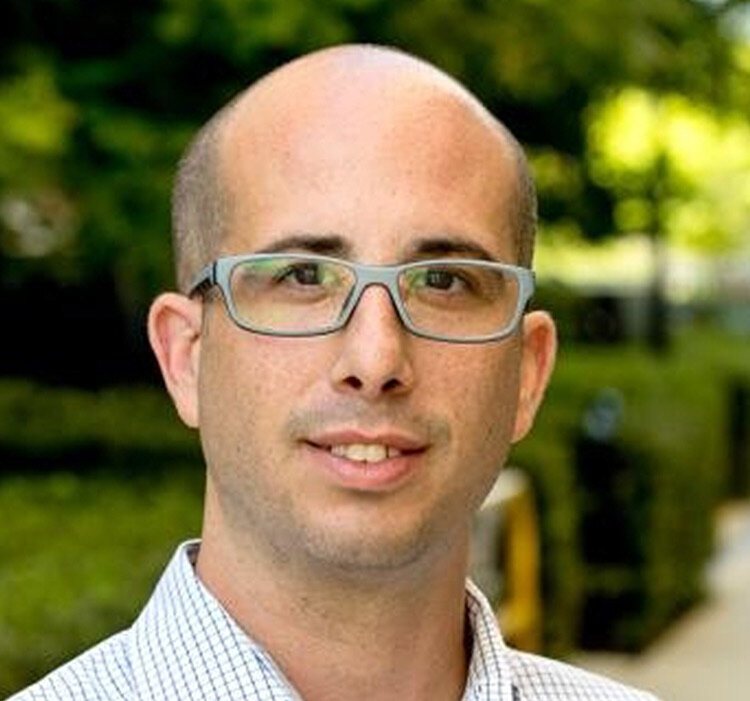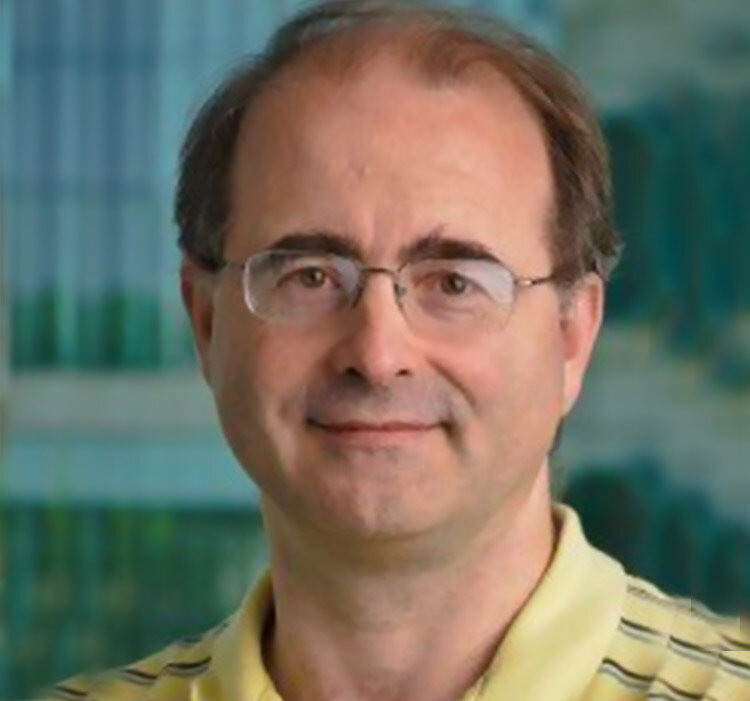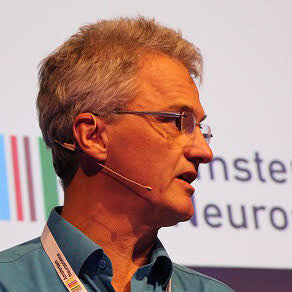Scientific Advisory Board
Click any Scientific Advisory Board Member’s name or photo to open a window on this page to read their bio.

Michael Boland, PhD
University of Pennsylvania

Beverly Davidson, PhD
Children’s Hospital of Philadelphia

Cindy Fishman, VMD, PhD
GlaxoSmithKline

Aaron Gitler, PhD
Stanford University

Benjamin Prosser, PhD
University of Pennsylvania

Ingo Helbig, MD
Children’s Hospital of Philadelphia

John Oldenhof, MSc, PhD
BioPharma Services

Jose Rizo-Rey, PhD
UT SouthWestern Medical Center

Matthijs Verhage, PhD
VU University Amsterdam
Michael Boland, PhD
Michael Boland is a cellular/molecular biologist with expertise in human stem cell technology, transcriptomics, epigenetics, developmental neurobiology, disease model-development, gene-targeted therapy development, and drug discovery.
He obtained a PhD in Biochemistry and Molecular Biology at the University of Nebraska Medical Center (Omaha, NE) where he identified and characterized a novel link between DNA methylation and DNA repair in embryonic stem cells. He did postdoctoral work at the Scripps Research Institute (La Jolla, CA), where he studied the developmental potential and genomic structural variation of mouse pluripotent stem cells via mouse cloning and whole genome sequencing. Also at Scripps Research, he integrated gene expression and epigenetic abnormalities during early neurodevelopment in a human pluripotent stem cell model of Fragile X Syndrome developed in collaboration with the Fragile X Testing Center at University of California – Davis.
As an Assistant Professor at the Columbia University Medical Center, Boland’s group combined single cell transcriptomics and neurophysiological methods with human pluripotent stem cells (2D and organoids) and genetic mouse models to discover and study developmental and functional phenotypes in neurodevelopmental disorders. After studying several developmental and epileptic encephalopathies (KCNT1, GNB1, HNRNPU, GRIN2A, FMR1), malformations of cortical development (MAP1B, FLNA) and congenital disorders of (de)glycosylation (NGLY1, PMM2, DPAGT1), his focus shifted to developing gene targeted therapies for STXBP1 haploinsufficiency when his oldest son was diagnosed with a frameshift in STXBP1 shortly after birth.
Boland left Columbia to join ENDD as the Strategic Director for Translational and Clinical Research. He is also an active patient advocate, a member of the Scientific Advisory Board for the STXBP1 Foundation and the SynGAP Research Fund, and serves as a consultant for Mahzi Therapeutics.
Beverly Davidson, PhD
Beverly L. Davidson, is the Director of The Raymond G. Perelman Center for Cellular and Molecular Therapeutics, the Chief Scientific Strategy Officer, and holds the Arthur V. Meigs Chair in Pediatrics at the Children’s Hospital of Philadelphia. She is also Professor of Pathology and Laboratory Medicine, Perelman School of Medicine, University of Pennsylvania, Philadelphia, Pennsylvania.
Dr. Davidson received her Ph.D. in Biological Chemistry from the University of Michigan in 1987, and in 1994 was recruited to the University of Iowa where she was promoted to Associate Professor in 1999 and Professor in 2001. From 1999-2014 she held the Roy J. Carver Chair in Biomedical Research, and was named Vice Chair for Research, Internal Medicine from 2004-2014. She was named an AAAS Fellow in 2007, and in 2009, received the NIH Mathilde Solowey Award, and was named Member, Electorate Nominating Committee, as well as chair, Medical Sciences, AAAS. In 2011, Dr. Davidson was the S.J. DeArmond Lecturer, American Association of Neuropathologists, and University of Iowa Presidential Lecturer. In 2012, received the Carver College of Medicine Faculty Service Award, and the Iowa Innovator Award. She was awarded the Leslie Gehry Brenner Prize for Innovation in Science in 2015. In April 2017 she became a member of the American Academy of Arts and Sciences.
Dr. Davidson’s research is focused on inherited brain disorders and the development of novel therapies to treat these fatal diseases. She has served on numerous NIH Study sections, was co-chair of the Editors Panel, Transformative Award Review Committee from the Office of the Director (NIH) and currently serves on Council for NINDS, NIH. She is a member of the Scientific Advisory Board of the Huntington Study Group and the Medical Research Advisory Board of the National Ataxia Foundation.
Dr. Davidson is a co-founder of Spark Therapeutics, Inc., and serves on the advisory boards of Sarepta Therapeutics and Intellia Therapeutics.
Cindy Fishman, PhD
Cindy Fishman is Senior Director of Pathology at GSK. She focuses on preclinical drug development, from discovery models and safety studies through to development trials and registration, for both small molecules and biologics. Dr. Fishman was previously at Merck. She received her PhD in Veterinary Pathology and Pathobiology at Purdue University, and her VMD in Veterinary Medicine from the University of Pennsylvania. Cindy is dual board certified in veterinary anatomic and clinical pathology. Cindy completed her Bachelor's Degree in Pre-medical studies at University of Vermont.
Aaron Gitler, PhD
Aaron D. Gitler is Professor of Genetics at Stanford University. He received his B.S. degree from Penn State University and did his Ph.D. studies on cardiovascular development in the laboratory of Dr. Jonathan Epstein at the University of Pennsylvania. Then he performed his postdoctoral training with Dr. Susan Lindquist at the Whitehead Institute for Biomedical Research and MIT. In 2007, he established his laboratory at the University of Pennsylvania and moved to Stanford in 2012. His laboratory has been using a combination of yeast and human genetics approaches to investigate pathogenic mechanisms of human neurodegenerative diseases, including amyotrophic lateral sclerosis (ALS) and Parkinson's disease. He was a Pew Scholar in the Biomedical Sciences, a Rita Allen Scholar and a recipient of the NIH Director's New Innovator Award, and the NIH NINDS Research Program Award.
Gitler identified mutations in the ataxin-2 gene as a major genetic contributor to ALS. His team recently demonstrated that inhibiting ataxin-2 markedly extends lifespan and improves motor performance in a mouse model of ALS, setting the stage for testing this therapeutic approach in human ALS. Gitler has also uncovered the mechanism by which mutations in other genes cause ALS and has discovered a broad role for RNA-binding proteins in ALS and related human neurological diseases.
Ingo Helbig, MD
Ingo Helbig, MD is an Attending Physician in the Division of Neurology at Children's Hospital of Philadelphia and Assistant Professor of Neurology and Pediatrics at the University of Pennsylvania. Dr. Helbig directs the genomic and data science core of the Epilepsy NeuroGenetics Initiative (ENGIN) program and he is an internationally recognized expert on STXBP1-related disorders. His research group has contributed to gene discovery in the field of neurogenetic disorders and epilepsies over the last decade and is focused on gene discovery in rare epilepsies and integration of clinical data through computational methods.
John Oldenhof, MSc, PhD
Dr. John Oldenhof is a father of a child with the STXBP1 disorder, Chief Scientific Officer at BioPharma Services, and Adjunct Lecturer in the Department of Pharmacology & Toxicology at the University of Toronto.
Dr. Oldenhof obtained his MSc in Behavioural Pharmacology, studying CNS reward mechanisms, and obtained his PhD in Neuromolecular Pharmacology, investigating intracellular protein-protein interactions with the Dopamine D4 receptor, at the University of Toronto. Dr. Oldenhof has worked in biotech and early stage drug development for over 20 year on well over 200 studies. His focus has been on Clinical Pharmacology studies, including first-in-human, drug-drug interaction, pharmacodynamic and human abuse potential studies. He has been involved in designing and conducting a number of studies for epilepsy drugs. He has also been involved in a number of studies on antisense drugs. He has a special interest in therapeutic strategies for single gene epilepsy disorders.
Dr. Oldenhof is currently Chief Scientific Officer at BioPharma Services where he oversees a team of clinical research scientists, pharmacokineticist, and statisticians.
Dr. Oldenhof holds an Adjunct Faculty position in the Department of Pharmacology & Toxicology at the University of Toronto. In this role he lectures undergraduate and graduate students on topics in clinical drug development.
John's son Lukas was diagnosed with epilepsy in 2011 and in 2013 it was determined that this was the result of a missense mutation in the STXBP1 gene. Since then John and his wife Izabella have been involved in the STXBP1 community.
https://www.biopharmaservices.com/our-team/
https://www.pharmtox.utoronto.ca/faculty/john-oldenhof
Benjamin Prosser, PhD
Benjamin (Ben) Prosser is an Associate Professor of Physiology at the University of Pennsylvania Perelman School of Medicine. He earned his Ph.D. in Molecular Medicine under Dr. Martin Schneider at the University of Maryland School of Medicine in 2009, and then completed his post-doc in Molecular Cardiology under Dr. Jon Lederer at Maryland in 2013.
Dr. Prosser started his own group at the University of Pennsylvania in 2014 with a focus on the heart and was named the Outstanding Early Career Investigator by the American Heart Association in 2017. In 2020, he became Associate Director of the historic Pennsylvania Muscle Institute as well as lead coordinator of a Leducq Trans-Atlantic Network of Excellence – an international consortium investigating the role of the cytoskeleton in heart failure. In 2021, Dr. Prosser was named a fellow of the International Society of Heart Research (ISHR) and received the Outstanding Investigator Award at the ISHR World Congress in 2022.
In 2018, Dr. Prosser’s daughter Lucy was born and diagnosed with STXBP1 encephalopathy, a rare, genetic neurodevelopmental disorder. Dr. Prosser started a separate research arm in his lab focused on developing new therapies for STXBP1 and related disorders. This work ultimately spurred the formation of the Center for Epilepsy and Neurodevelopmental Disorders (ENDD), which Dr. Prosser directs with his colleagues Drs. Beverly Davidson and Ingo Helbig of the Children’s Hospital of Philadelphia (CHOP). ENDD represents a cross-institute, interdisciplinary collaboration of fundamental, translational, and clinical researchers focused on developing genetic therapies for STXBP1, SYNGAP1, and related neurodevelopmental disorders.
Jose Rizo-Rey, PhD
Jose Rizo-Rey serves as the Chair of the Molecular Biophysics graduate program. He was born in Barcelona, Spain, in 1959. He received a B.Sc. degree in Organic Chemistry in 1981 from the University of Barcelona. During these college studies, he became very interested in quantum field theory and statistical mechanics, which led him to obtain a second B.Sc. degree, this time in theoretical physics, from the same University in 1988. During the 1982-1988 period, he also obtained M.Sc. and Ph.D. degrees in organic chemistry from the University of Barcelona, working in the laboratories of Ernest Giralt and Enrique Pedroso. He first worked on pioneering methodology to analyze peptides attached to solid supports by gel-phase 13C NMR spectroscopy, and later on the development of polar protecting groups for peptide synthesis. In 1989 he started postdoctoral research in the laboratory of Lila Gierasch at UT Southwestern, working on conformational studies of a variety of peptides by NMR spectroscopy and molecular dynamics. In the early 1990s he shifted his interest to protein NMR and protein folding. He established his independent research group in 1995 at UT Southwestern.
The main focus of his research is the study of the mechanisms of neurotransmitter release and intracellular membrane fusion using structural biology, a variety of biophysical techniques and reconstitution approaches.
A bilingual environment in Barcelona, where most people speaks Catalan and Spanish, together with his move to the US, have led to a duality of names: his official name is Jose Rizo-Rey, but he signs all his publications as Josep Rizo. The Rizo lab homepage can be found at biophysics.swmed.edu/~rizo/
Matthijs Verhage, PhD
Matthijs Verhage is head of the Functional Genomics Department at Amsterdam University Medical Center and VU University Amsterdam, The Netherlands. He obtained his PhD at the University of Amsterdam and received post-doctoral training with David G. Nicholls (Dundee, UK) and Nobel laureate Tom Südhof (Dallas, USA), where he started working on STXBP1 (even before the gene/protein had a name). His lab studies the secretion of chemical signals in the brain. STXBP1/Munc18-1 is a major regulator of this process. Dr. Verhage has authored 43 scientific papers on STXBP1/Munc18-1 (Jan 2020), spanning from molecular to clinical studies. His lab first showed that in the absence of STXBP1/Munc18-1, nerve cells cannot release chemical signals and elucidated several molecular mechanisms that modulate STXBP1/Munc18-1 function. Recently, his lab published the first homozygous carriers (individuals with both copies of the gene carrying a mutation), and demonstrated that mutations found in STXBP1 syndrome patients lead to impaired stability of the protein. Dr. Verhage has recently proposed unifying principles to explain syndromes caused by mutations in genes that together organize the release of chemical signals in the brain (SNAREopathies) and is a protagonist to new diagnosis on the basis of disease mechanism. Dr. Verhage is also affiliated with the Karolinska Institutet in Stockholm (the SUN project), and the Broad Institute (MIT, Cambridge/Boston, the SYNGO project). Dr. Verhage is co-founder of COSYN, a large EU project to study comorbidity among brain disorders, and coordinator of SynGO, a knowledgebase for synapse research worldwide. Dr. Verhage collaborates with several pharma companies on STXBP1 programs and is on the scientific advisory board of institutions in France, Germany, Portugal and Korea. In 2013 he was an ERC Advanced Grant laureate, a €2.5M personal research grant from the EU.
